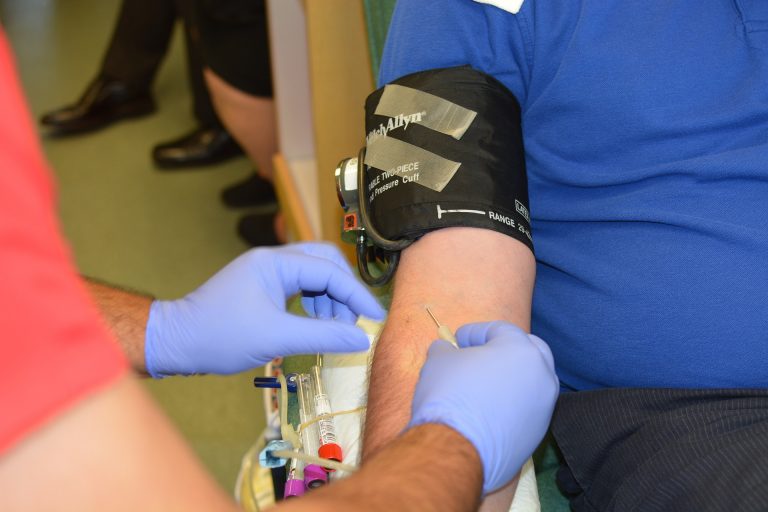MoveUP, the union representing over 12,000 members at public and private sector companies in Western Canada, calls on the Canadian Blood Services to end its discriminatory practice of banning gay or bisexual men, or transgender women, from donating blood unless they have been celibate for at least one year.
Members of the community are encouraged to sign petition E-1589 asking the government of Canada to act now to repeal the blood ban against men who have sex with men. The petition, supported by Burnaby South MP Kennedy Stewart, the NDP’s Science Critic and BC Caucus Chair, is open until July 17. In just over one month since launching, over 3,500 signatures have already been collected from across the country and even outside Canada.
“The blood ban by Canadian Blood Services is discriminatory. They say it is based on science, but it is not, it is purely discrimination,” said Gunter Seifert, a member of MoveUP’s executive board and co-chair of the Human Rights Committee. “This policy is not only discriminatory and offensive but it puts the lives of Canadians who need blood at risk by lowering the pool of donors.”
Canadian Blood Services requires gay or bisexual men to be celibate for one year before they are permitted to donate blood. This rule also applies to transgender women unless they have had full physical surgery.
“What Canadian Blood Services is saying is that if you are a heterosexual male who practices unsafe sex with multiple partners, your blood is considered less at-risk compared to a gay or bisexual male who is monogamous and practices safe sex,” said Seifert. “Screening questions should be about lowering the risk of all people who have unsafe sex, not targeting sexual or gender orientation. It’s quite simply discrimination when you single out a particular group.”
According to the Canadian Blood Services website, the organization uses antibody testing and nucleic acid testing (NAT) on every donation. There is a period of nine days known as the ‘window period’ between exposure to HIV and the ability to detect antibodies to that virus.
“Modern screening tests are what keeps our blood supply safe,” said MoveUP Vice-President Annette Toth, who initiated the petition. “If the issue with the testing is that HIV is undetectable in the first nine days then everyone should be screened. Why not ask all potential donors to be celibate for at least nine days? It is discrimination and it is ridiculous to tell some people to be celibate for one year. Their policy just does not meet the facts.”
“We all want safe blood and Canadian Blood Services has even admitted that our national blood supply is at a critically low level,” said Seifert. “Screening questions should be based on safety and science, not sexual orientation. We, as a country, simply can’t afford to turn down clean blood from a particular source because we’re stuck with 1950s morality. Human rights and lives are both at stake.”
Petition e-1589 can be accessed at: https://petitions.ourcommons.ca/en/Petition/Details?Petition=e-1589
About Gunter Seifert:
Gunter Seifert is a MoveUP member working at ICBC and is a part of MoveUP’s executive board. He is co-chair of MoveUP’s Human Rights Committee and also part of the BC Federation of Labour’s Human Rights Committee. He was recently elected to represent the LGBTQ2S community to the Canadian Equity Council. Gunter is a member of the Rainbow Refugee Program which helps members of the LGBTQ2S community across the world find peace and solidarity within Canada.
About MoveUP’s Human Rights Committee:
MoveUP’s Human Rights Committee represents persons of colour, First Nations, LGBTQ2S persons, and persons living with disabilities. The committee ensures that MoveUP members are made aware of pertinent human rights issues (including international human rights, LGBTQ2S rights, Aboriginal rights, and harassment), and monitors the effects on contract language (i.e. seniority rights, training, employment equity, etc.) on the rights of all members. The committee is affiliated with, or supports, the Council of Canadians, CoDevelopment Canada, BC Human Rights Coalition, Habitat for Humanity, Amnesty International, Stephen Lewis Foundation, Positive Living BC, and Multi-Union Pride.



